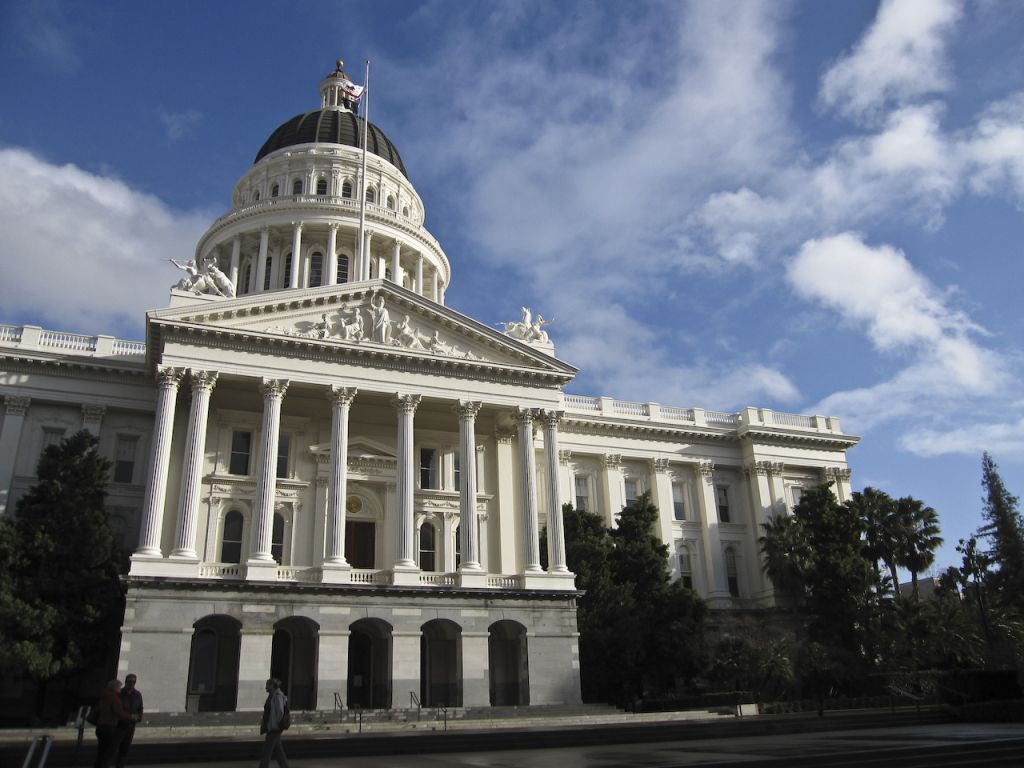Transparency initiative shaped nature of road-tax debate
by Steven Greenhut | April 12, 2017 7:00 am
 It’s no secret that the state’s legislative leadership is less than thrilled about an open-government initiative that California voters passed in the November election, and are doing what they can to undermine its clear intent.
It’s no secret that the state’s legislative leadership is less than thrilled about an open-government initiative that California voters passed in the November election, and are doing what they can to undermine its clear intent.
Yet, it’s a testament to the measure’s importance that the Legislature painstakingly followed its dictates as they passed last week a controversial bill[1] to increase gas taxes and vehicle-license fees to fund $52.4 billion in transportation upgrades over the next decade.
Had they not followed the timelines detailed in the measure, the transportation bill would be subject to legal challenge. That reality showcases the “teeth” in Proposition 54[2], which passed statewide with 65 percent of the vote – and even had the rare virtue of receiving voter approval in every one of California’s 58 counties.
The proposition is simple, though arcane sounding. It mainly requires that all bills be printed in final form – and published online –72 hours prior to a final vote in either house of the Legislature. Good-government reformers had for years tried to get the Legislature to approve such a measure, but were consistently stymied.
That’s because legislators love to rush through those “gut and amend”[3] measures at the last moments of a legislative session. That’s when the guts of a bill are stripped away and an entirely new piece of legislation is dropped into its shell. In these rush situations, most legislators are unaware of the details of what they are voting on and the public and media can’t see what’s in the bills. This situation breeds cynicism and contempt for the legislative process.
By contrast, the vote over Senate Bill 1, the transportation measure, was a model of openness, according to many observers. As observers have noted, there’s plenty of reason for criticism of the bill and other parts of the process – the size of the tax increases, the pork-barrel projects, the lack of reforms for current transportation programs – but there’s no doubt the voter-approved proposition made it easier to see what was in it, warts and all.
Prior to SB 1’s passage, an ideologically diverse group of Prop. 54 supporters, including the Howard Jarvis Taxpayers Association and California Common Cause, sent a letter to legislative leaders expressing their “concerns with the Legislature’s implementation to date, which could inadvertently result in the invalidation of bills that the Legislature wishes to pass.”
The bill seemed like a warning: The Legislature better follow the details of Prop. 54 in its consideration of SB 1 or potentially face legal efforts to overturn the measure if it passes. Indeed, the Legislature reportedly followed the 72-hour rule with nine minutes to spare.
But the warning was timely. As the San Francisco Chronicle’s John Diaz explained[4] in an April 7 editorial, “Of particular concern was the Assembly’s attempt to interpret the 72-hour rule more narrowly than was presented to voters.” Assembly leaders interpreted the measure – which its authors say applies to all bills – “only to bills that had previously passed the Senate and were on their last stop before the governor.” That interpretation could eventually be challenged in court.
As the letter writers explained[5], “Each member of the Legislature is constitutionally guaranteed the right to have at least 72 hours to review the final version of any bill prior to a floor vote, regardless of the bill’s house of origin, and your constituents have the same right. We believe the Legislature’s rules should unambiguously reflect that right.”
The proposition also allows the public to record public meetings and requires the Legislature, beginning in 2018, to post videos of all such meetings online within 24 hours. The letter argues that the Legislature, however, is improperly adopting rules regarding such recordings.
“If the Legislature wishes to regulate the placement and use of recording or broadcasting equipment, it must adopt those rules in compliance with the Constitution’s requirements: that is, by a two-thirds vote concurring in each house, or by statute,” the signers explained.
As Diaz argued, the Legislature had for years “rejected any and all such reforms.” Supporters of the status quo had maintained imposing these “sunshine” rules would restrict the ability of legislators to get things done. But with the passage of SB 1, the Legislature passed one of its major and controversial priorities, despite having to operate with a new level of openness.
Legislators still are resisting[6] the new rules, but they face grave risks if they push their recalcitrance too far. “If the Legislature does not adopt rules consistent with Proposition 54, there is a risk that the Legislature may schedule votes in violation of the Constitution’s 72-hour notice requirements,” according to the coalition letter. “Any such vote for passage will be invalid, and that bill will be ineligible to become a law.”
Ultimately, the Legislature understood what was at risk, which is why they apparently didn’t take any chances with their transportation bill.
Steven Greenhut is Western region director for the R Street Institute. Write to him at [email protected].
- a controversial bill: https://leginfo.legislature.ca.gov/faces/billNavClient.xhtml?bill_id=201720180SB1
- Proposition 54: http://voterguide.sos.ca.gov/en/propositions/54/
- “gut and amend”: http://www.commoncause.org/states/california/issues/ethics/gut-and-amend/?referrer=https://www.google.com/
- As the San Francisco Chronicle’s John Diaz explained: http://www.sfchronicle.com/opinion/diaz/article/California-legislative-leaders-resist-11059236.php
- As the letter writers explained: https://lwvc.org/sites/default/files/downloads/Prop%2054%20press%20release%204-3-17.pdf
- resisting: http://www.ocregister.com/2016/06/11/lawmakers-mobilize-to-thwart-transparency-initiative/
Source URL: https://calwatchdog.com/2017/04/12/transparency-initiative-shaped-nature-road-tax-debate/